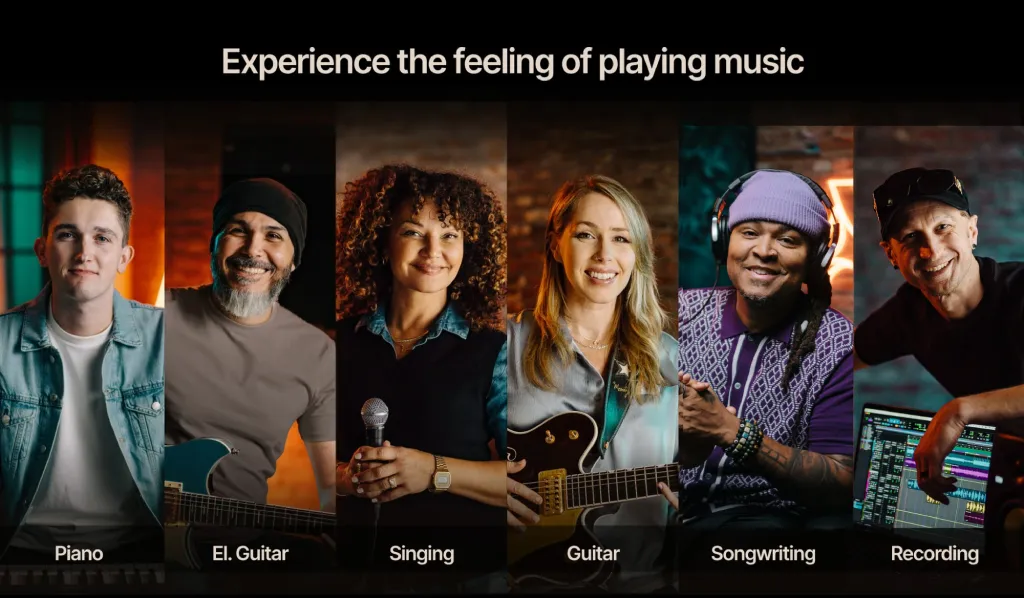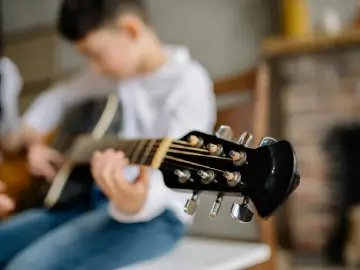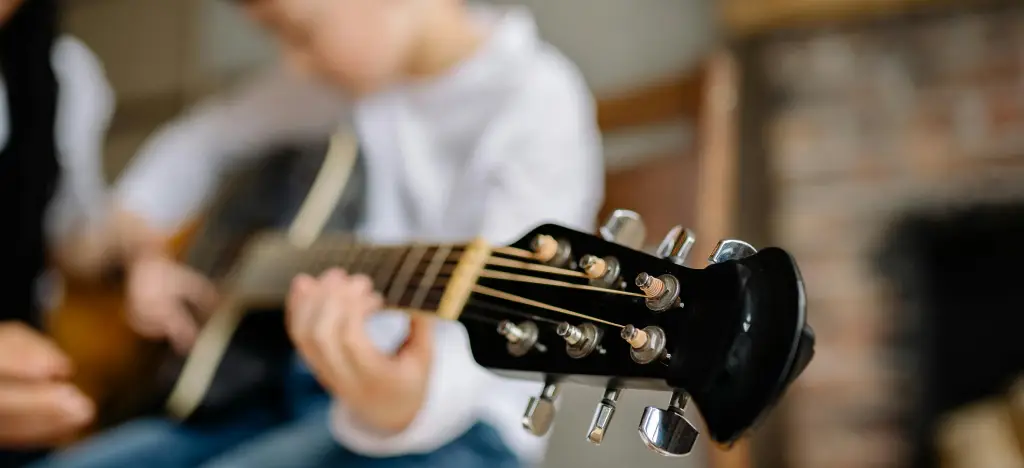As a parent, it’s easy to focus on the obvious priorities: reading, writing, maths. But if you want to support your child’s development in a more rounded way — emotionally, socially, physically, and cognitively — music education is one of the most powerful tools you can give them.
Here’s why music matters, and what the research says.
- Music helps children think better — and learn faster
- Music gives children the tools to understand and manage their emotions
- Music teaches cooperation, empathy, and social confidence
- Music supports physical coordination and body awareness
- Start their musical story today
Music helps children think better — and learn faster
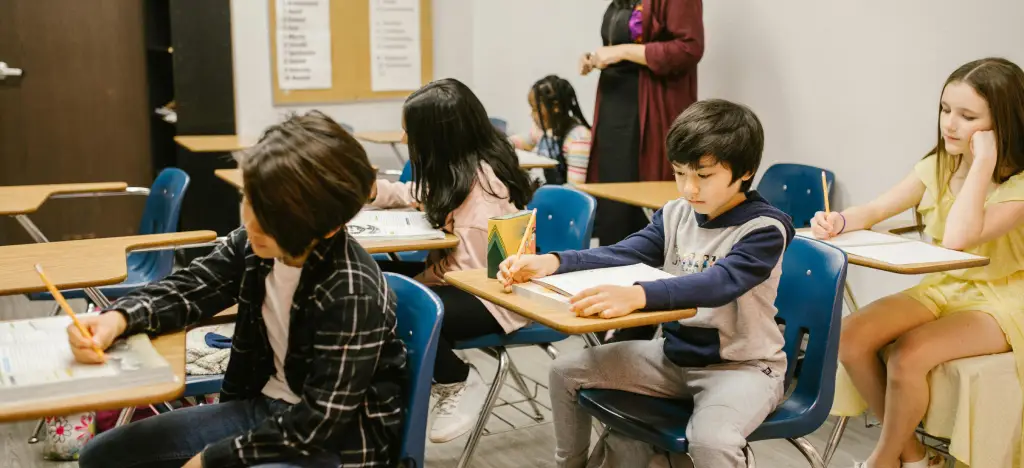 You’ve probably heard that music is “good for the brain,” but what does that actually mean? Scientists have looked closely at how music lessons affect cognitive development — and the results are impressive.
You’ve probably heard that music is “good for the brain,” but what does that actually mean? Scientists have looked closely at how music lessons affect cognitive development — and the results are impressive.
When a child learns an instrument or engages in structured musical activities, their brain is doing multiple things at once: listening, remembering, counting, moving, and focusing. That multitasking has long-term benefits, and they go well beyond just playing music.
Key research-backed effects include:
Better memory and attention: Children with music training show stronger working memory and executive function — the skills that help with planning, self-control, and switching between tasks (Study – PMC).
Improved language and reading skills: Music sharpens the brain’s ability to detect rhythm and sound patterns — skills directly linked to learning to read and process language (Tierney & Kraus, 2013).
Better performance at school: Children who engage in music over time often outperform their peers in maths and English, partly due to music’s impact on pattern recognition, memory, and symbolic thinking (Vaughn, 2000).
💡 ARTMASTER TIP: Find out more about the ways that learning music benefits the brain and body.
Music gives children the tools to understand and manage their emotions
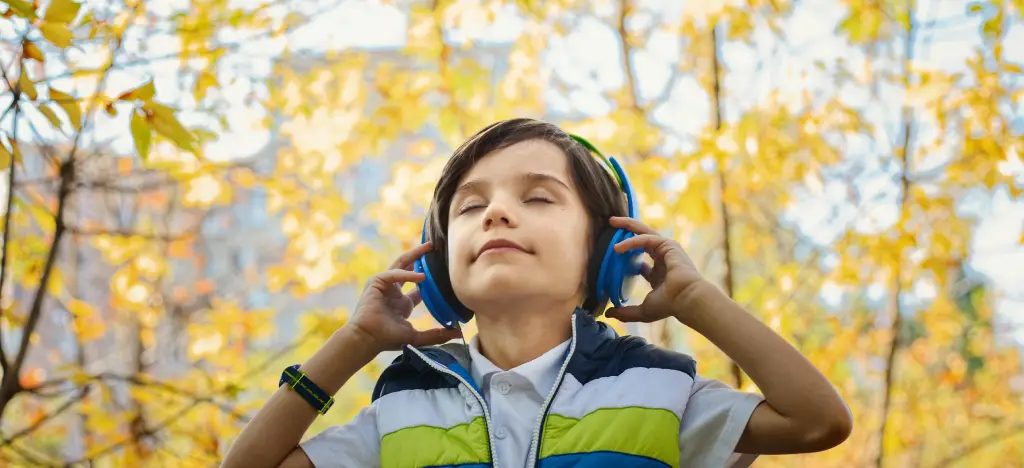 Even as adults, we sometimes struggle to put our emotions into words. For children, this is even harder. Music offers a natural way to explore feelings, relieve stress, and build emotional awareness.
Even as adults, we sometimes struggle to put our emotions into words. For children, this is even harder. Music offers a natural way to explore feelings, relieve stress, and build emotional awareness.
Music can calm a restless child, lift their spirits, or help them process something they don’t yet understand. That’s why it’s often used in therapy — but the emotional benefits show up in everyday settings too, whether your child is singing, playing, or simply listening.
Here’s what the research shows:
Music helps with emotional regulation: Children in music therapy settings — especially those with autism or anxiety — show better control over frustration, fear, and overstimulation (Geretsegger et al., 2014).
Music builds emotional intelligence: Studies show that children who engage in musical activities become more self-aware and resilient. Making music helps them reflect on their feelings, express themselves, and adapt to challenges (Saarikallio & Erkkilä, 2007).
Music reduces anxiety and boosts mood: A 2022 study found that group music-making helped students feel more stable, less stressed, and more emotionally connected — after just a few sessions.
💡 ARTMASTER TIP: The benefits of music don’t stop in childhood. In fact, studies suggest they keep building — well into adulthood and even old age. From brain health to emotional resilience, music may not just enrich life… it might actually help you live longer.
Music teaches cooperation, empathy, and social confidence
 One of the most underrated parts of music education is its social impact. Music gives children a reason to interact — to listen to each other, respond in time, share the spotlight, and build something together.
One of the most underrated parts of music education is its social impact. Music gives children a reason to interact — to listen to each other, respond in time, share the spotlight, and build something together.
From singing in a school performance to jamming in a group, these interactions are a brilliant way for children to learn trust, teamwork, and patience — all wrapped up in something enjoyable.
Social benefits include:
Better cooperation and empathy: Young children who make music together are more likely to help, share, and show kindness. Research has linked joint music-making to increased prosocial behaviour (Kirschner & Tomasello, 2010).
Increased social confidence: Whether it’s performing a solo or just clapping in time with others, music helps children build confidence in front of a group. This often carries over into school and peer relationships.
Exposure to different cultures and perspectives: Learning songs from around the world — or using music to tell stories — helps kids become more open-minded and globally aware.
Improved group behaviour: Children who participate in music regularly are often more patient, better at turn-taking, and more aware of their peers’ needs (Lee et al., 2021).
💡 ARTMASTER TIP: If you’re wondering which instrument might be the best fit for your child — something fun, approachable, and beginner-friendly — we’ve put together a guide to help you decide.
Music supports physical coordination and body awareness
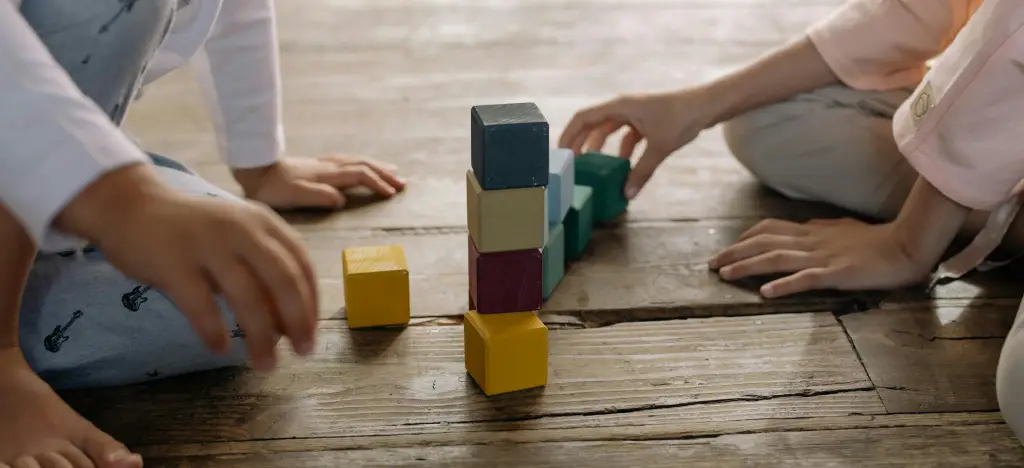 It might not seem like it, but music is also a physical activity. From controlling your breath while singing to placing your fingers precisely on a fretboard, music helps children develop the kind of fine and gross motor skills that are essential in early childhood.
It might not seem like it, but music is also a physical activity. From controlling your breath while singing to placing your fingers precisely on a fretboard, music helps children develop the kind of fine and gross motor skills that are essential in early childhood.
This is especially important for younger children or those with developmental delays, who may struggle with coordination in other areas.
Physical benefits include:
Improved fine motor skills: Playing an instrument like piano or violin requires precision, coordination, and bilateral movement. These skills support writing, drawing, and other everyday tasks (Hyde et al., 2009).
Improved balance and spatial awareness: Music and movement classes — dancing, jumping in rhythm, or marching to a beat — develop physical control and body awareness, especially in early childhood (Zachopoulou et al., 2004).
💡 ARTMASTER TIP: Controlled breathing not only supports singing but can also reduce stress and promote relaxation. To learn more, check out our article on breathing techniques.
Start their musical story today
Music doesn’t just entertain. It teaches your child how to focus, express themselves, collaborate with others, and move through the world with more confidence and control.
And perhaps most importantly — they’ll love it. Which means they’ll keep doing it. Which means the benefits will keep growing.
Ready to get started?
At ArtMaster, we make it easy for your child to fall in love with music — and for you to feel confident they’re learning something meaningful. With lessons designed by world-class musicians and educators, your child can explore piano, guitar, singing and more, all from home and at their own pace.
Let their musical journey begin — it might just be the best gift you ever give them.
Try out our 7-day free trial today!
